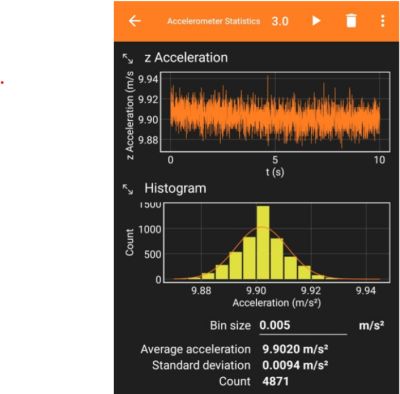Current events
Next talk on Tuesday in 3 days by Corinne Steiner.
News 23.01.2026
Sebastian Staacks Receives Physics Teaching Award 2026
Site Content:
News 22.07.2025
New publication: Recitation tasks revamped? Students’ perceptions of smartphone-based experimental and programming tasks in introductory mechanics

Phys. Rev. Phys. Educ. Res. 21 020110 (2025) This exploratory field study investigates the integration of innovative forms of recitation tasks in a first-year introductory mechanics course, focusing on smartphone-based experimental tasks alongside programming and standard recitation tasks. Smartphones, combined with external sensor modules, serve as a gateway enabling students to conduct various low-cost and authentic physics experiments with first-hand data collection outside traditional lab settings. These tasks aim to enhance students’ agency in independent physics experimentation and enrich homework assignments by dissolving boundaries between lectures, recitation sessions, and traditional labs, and thereby linking theoretical and experimental aspects of undergraduate physics education. To explore this potential, we implemented and evaluated a sample set of nine smartphone-based experimental tasks and, for comparison, three programming tasks as weekly exercises in a first-year physics course at RWTH Aachen University. We investigated students’ perceptions of learning with these new tasks through twelve short surveys involving up to 188 participants, focusing on factors such as goal clarity, difficulty, or feasibility at home. In two additional surveys with 108 and 78 participants, students assessed affective responses to the smartphone-based experimental tasks relative to the programming and standard recitation tasks. Our findings indicate that the smartphone-based experimental tasks were generally well-suited to the students and tended to outperform the programming tasks in terms of perceptions of learning with the tasks and affective responses. Overall, students responded positively to the new experimental tasks, with perceptions comparable to, or only partly below, those of long-established standard recitation tasks. These results suggest that smartphone-based experimental tasks can be successfully integrated into teaching and contribute to refining traditional recitation tasks. Students’ differentiated perceptions of the three task types investigated offer valuable insights into how students perceived technology-enhanced recitation tasks in terms of feasibility, engagement, and instructional value. This provides a meaningful basis for instructors and researchers aiming to design more effective and student-centered learning environments in undergraduate physics education.
